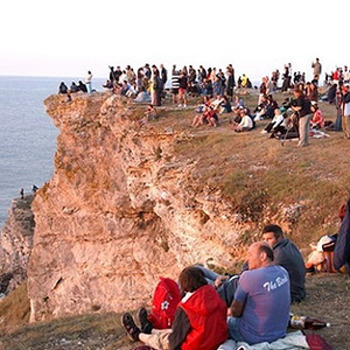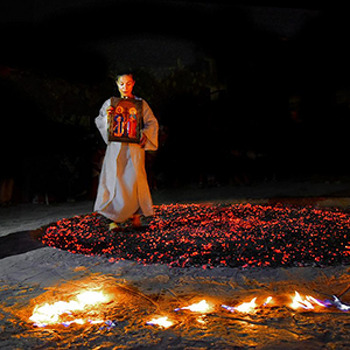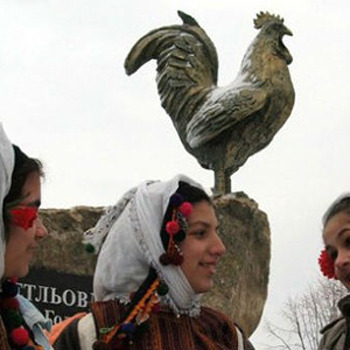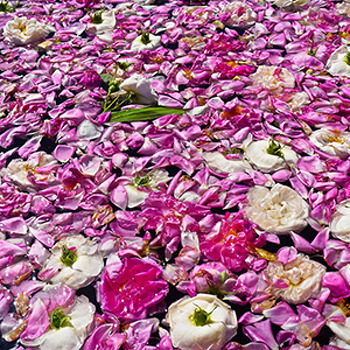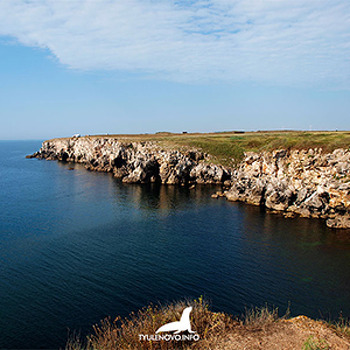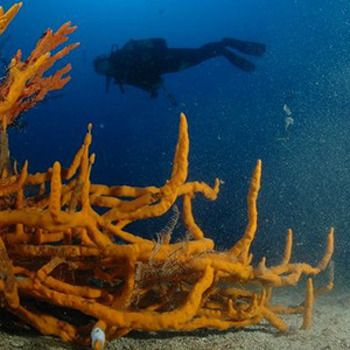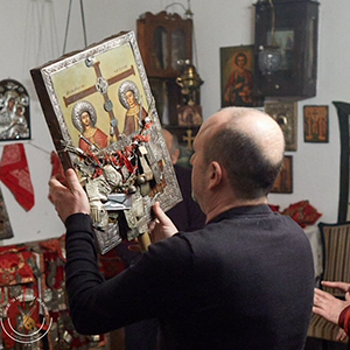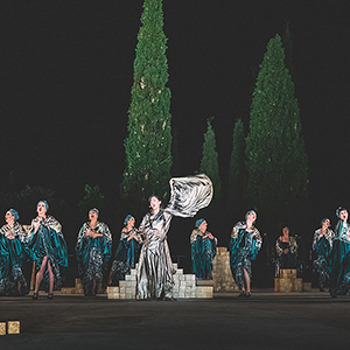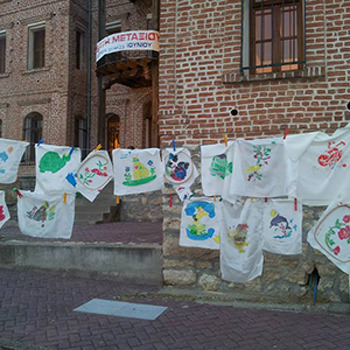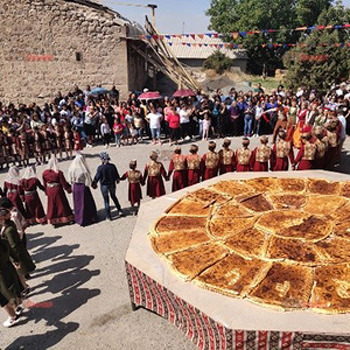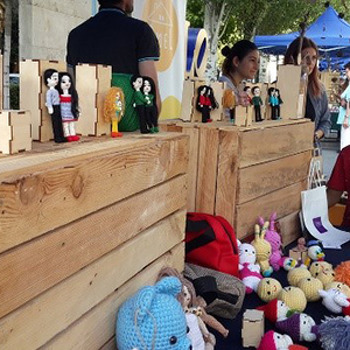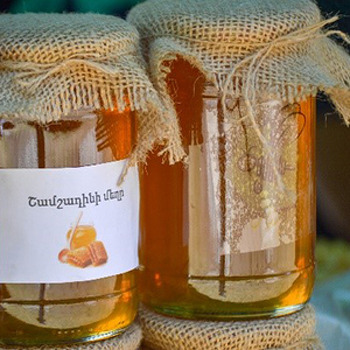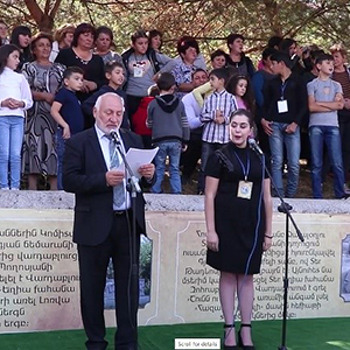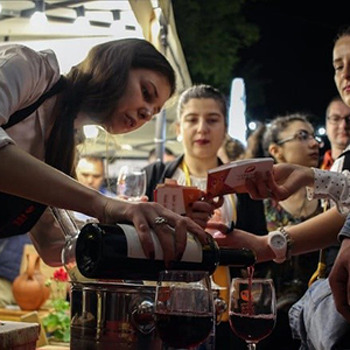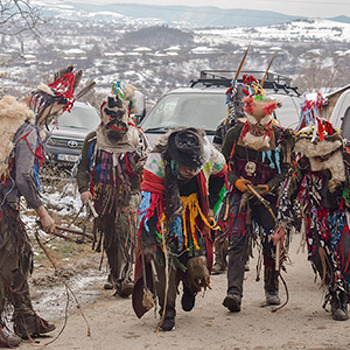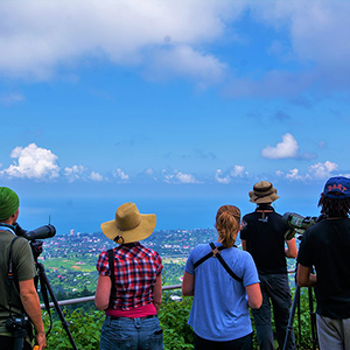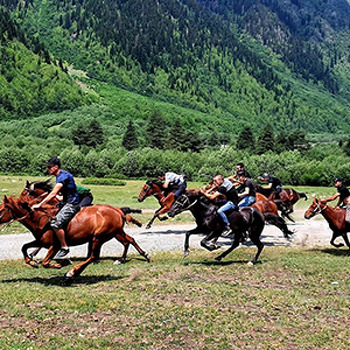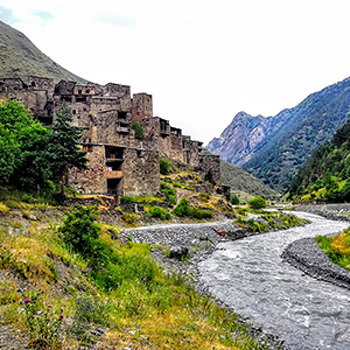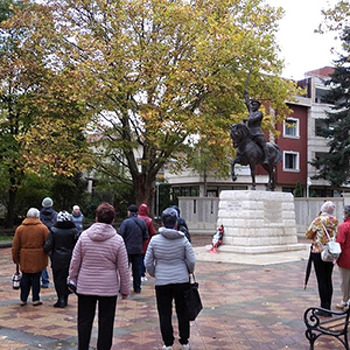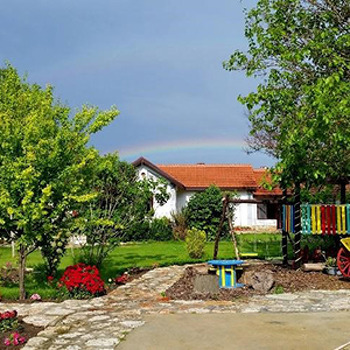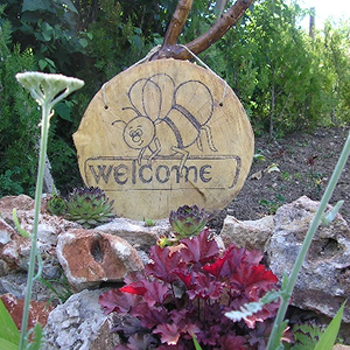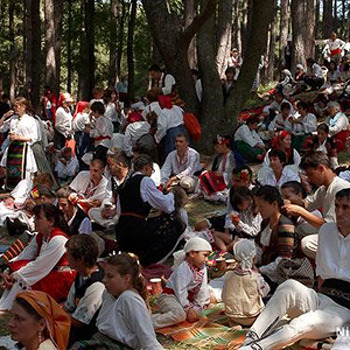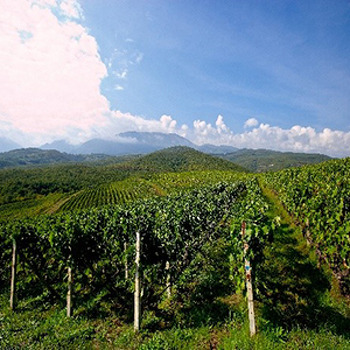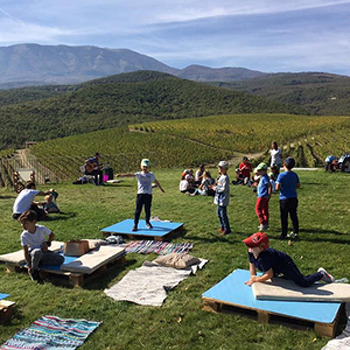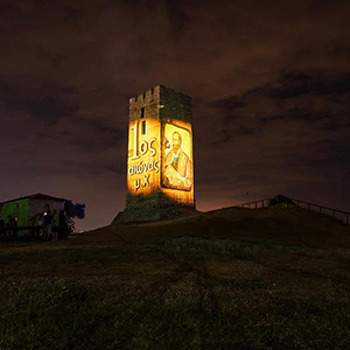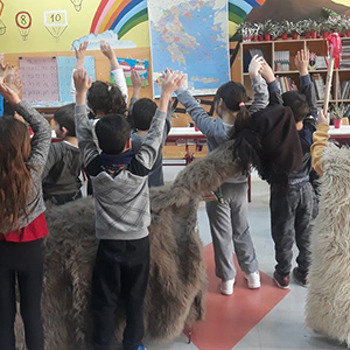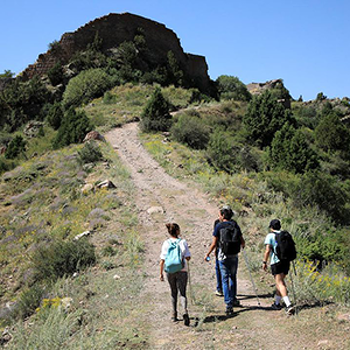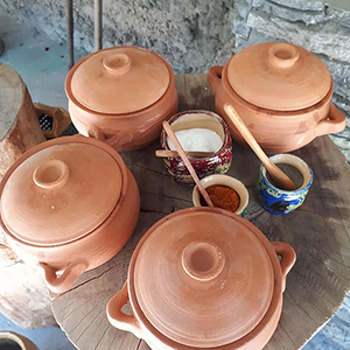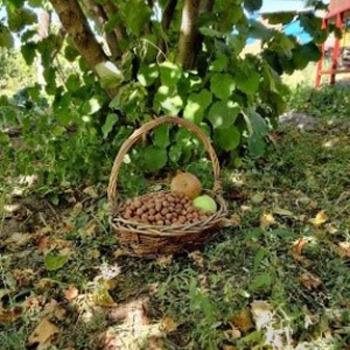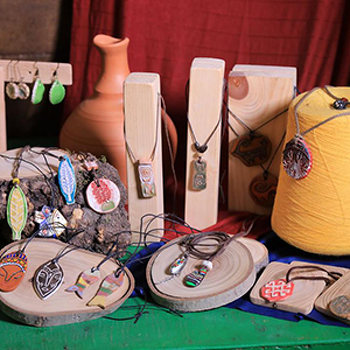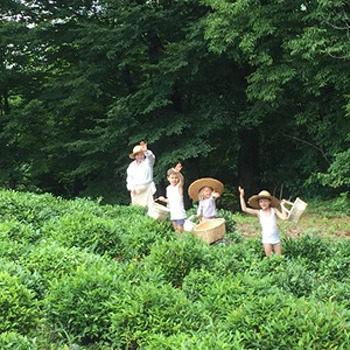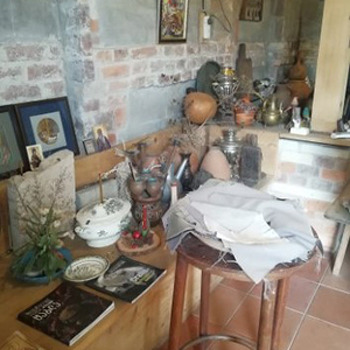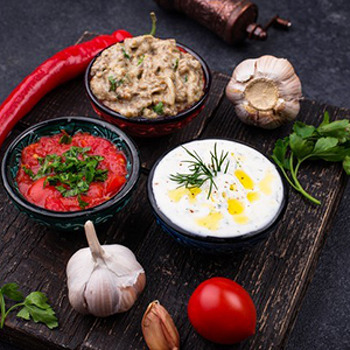Key facts and figures
The BSB-GR region consists of two administrative regions, the Region of Central Macedonia and the Region of Eastern Macedonia and Thrace.
The BSB-GR regions have a rich and diverse stock of both tangible and intangible heritage related to their long history and human presence in their territory from the pre-historic era to the modern years.
Regarding the tangible cultural resources, being the cradle of the ancient Macedonian civilisation, boasts a very rich cultural heritage that serves as a major tourist attraction. BSB-GR region incorporates the majority of the territories of ancient Macedonia and is home to 4 of UNESCO’s 18 World Heritage sites in Greece. One of which, Vergina is one of the most important archaeological sites in Greece and one of international interest.
Thessaloniki is the capital of the region. Historically, Thessaloniki has been playing an important role in the formation of the Greek and the Balkan area culture. A great number of buildings with significant architectural interest of all historical periods are located at the city centre. Fifteen monuments are listed as UNESCO World Heritage Sites.
Apart from the historical monuments and important museums (https://bit.ly/3scOS7O), Thessaloniki hosts regular fairs of international appeal in the field of commerce and arts and is also an important hub for urban tourism and gastronomy. Veroia, another important city, has a significant number of monuments from the Byzantine era, including numerous churches. In Eastern Macedonia and Thrace, the Old Town of Xanthi is widely known for its distinctive architecture.
Furthermore, Mount Olympus, Greece’s tallest mountain, known worldwide as the home of the Greek gods, is also noted for its exceptional biodiversity and rich flora and is on UNESCO’s tentative list for nomination. Mount Athos, known as “Agion Oros”, the third UNESCO heritage site with the great number of monasteries there and the unique landscape of the peninsula is an important centre of religious tourism.
The Region of Eastern Macedonia and Thrace hosts important archaeological sites (e.g. Ancient Theatre of Philippi) and natural areas protected by the Ramsar Convention like four out of the eleven wetlands of international importance of the country (including National Park of Nestos Delta and lakes Vistonida-Ismarida, Porto Lagos and the Evros Delta National Park). Also, the Fracto Forest and the Dadia-Lefkimi-Soufli Forest National Park are two of the most important protected areas at national, European and international scale with high ecological value.
Regarding the intangible resources, both BSB-GR regions have a very rich variety of customs and traditions that construct a remarkable and diverse local culture. These traditions create a palimpsest, prosperous, and varied cultural profile.
Administrative information
Greece (GR) is part of the European Union and Greece money currency is Euro. Greece is in the Eastern European Time Zone and utilizes Daylight Saving Time (GMT/UTC + 2h during Standard Time, while GMT/UTC + 3h during Daylight Saving Time).
The two BSB-GR regions cover the largest part of Northern Greece and their total population is almost 2.5 million people. Each of the Regions is divided into Regional Units (RU) that are further subdivided into Municipalities.
The Region of Central Macedonia is the second largest region in Greece. It occupies 19,168km2 and has a population of 1.882.108 people. The Region is divided into 7 RU, namely the RU of Thessaloniki, Serres, Imathia, Pella, Pieria, Halkidiki and Kilkis. The RU of Thessaloniki, Halkidiki and Pieria assemble the highest tourist activity in Central Macedonia. The Region of Eastern Macedonia and Thrace is one of the smallest regions in Greece, as it occupies 14.184km2 with a population of 608.182 people. Administratively speaking the Region is divided into 6 RU, the RU of Evros, Kavala, Rodopi, Xanthi, Drama and Thasos (which coincides with the island of Thasos). The RU of Kavala and Thasos assemble the highest tourist activity in the Region.
The Egnatia Motorway and its vertical axes represent the backbone of the Northern Greek transport system and is a TEN-T priority project. Thus, it constitutes a significant transport axis and operates as a communication channel between Greece and the countries of the Balkans and the Black Sea. KTEL is the main intercity public transport bus service in Greece. In the BSB-GR Regions, all the capitals of the RU, cities and villages are accessible by intercity buses. Railway network is fairly well functioning but is not dense enough to cover the need for domestic transportation. Regarding the BSB-GR Regions, RU of Kavala and Halkidiki are the only ones not served by the national railway network. There are three airports in the BSB-GR Regions, Thessaloniki Airport "Makedonia", Kavala International Airport "Alexander the Great" and Alexandroupolis "Dimokritos" Airport. The main ports in BSB-GR Regions are located in Thessaloniki, Kavala and Alexandroupolis.
Applied research results
In Greece, tourism has become an important and active subject of research. In the BSB – GR region there are several university research units and laboratories that research and study projects take place both independently and through collaboration with external partners (public and private bodies). Among the current research issues of concern are topics related to alternative forms of tourism, i.e. cultural, wine, heritage, agro, sustainable, maritime, pilgrimage tourism.
Indicative research programs in the BSB – GR region related with alternative forms of tourism are the following.
In the Region of Central Macedonia
- Terra – Mine: The overall objective is the preservation and valorization of the old mines and quarries of the cross-border area for tourist purposes (Thessaloniki) (https://terramine.eu/).
- ToCulter: It aims to promote tourism with emphasis on important water bodies and thermal springs, utilizing modern technology, innovative forms of tourism promotion and enhancing the overall tourism product through training (Serres) (https://toculter.eu/).
- Other: cult – RinG (https://www.interregeurope.eu/cult-ring/), DESTI – SMART (https://www.interregeurope.eu/desti-smart/), Cult–CreaTE (http://www.interregeurope.eu/cultcreate/), CHRISTA (https://www.interregeurope.eu/christa/).
In the Region of Eastern Macedonia and Thrace
- SILC: It aims to reinforce the cultural tourism development and cooperation of tourism entrepreneurship related to the Silk Road heritage in the Black Sea Basin Region (http://www.culturaltourismsilkroad.net).
- ECOTOUR NET: It aims to create a variety of ecotourism activity routes and locations to support the tourism in Black Sea Basin region (Xanthi) (https://ecotournet.net/).
- Other: SABS - Sailing across the Black Sea (https://www.facebook.com/SaBS.GR/), GREETHIS - Green tourism and historical heritage (https://greethis.net/)
Training opportunities for tourism professionals
In Greece, due to its status as a popular tourist destination where a lot of its citizens are active in the tourism industry, a significant number of tourism trainings are implemented. Although many of them are addressed to the hotel sector, nowadays more and more training actions are related to alternative tourism management and hospitality. As it was mentioned before, the two Greek regions are cross-border areas and take part in many projects like BSB and Interreg. In this context, a number of training and awareness-raising activities are implemented on alternative tourism and are addressed to policy makers, decision-makers and professionals. Some characteristic examples are the Interreg project TERRA VINO (https://terravino.eu/) and likewise the BSB project THESEA OF WINE, which are both related to wine tourism, the Interreg project CINECULTURE (https://cineculture.eu/), which promotes the cinema history of the cross-border area and the Interreg project BORDERLESS CULTURE (https://borderlessculture.eu/), which aims to develop a sustainable cross-border tourist thematic destination. Furthermore, regarding the Greek tourism fairs, similar specialized seminars are organized, such as the Philoxenia fair (https://philoxenia.helexpo.gr/el), the Athens International Tourism Expo (www.aite.gr), the Greek Panorama (https://www.greekpanorama.gr) and the recent Thematic Tourism Exhibition, which are addressed to alternative tourism (https://ttgw.gr/).
Funding opportunities for projects and businesses
In Greece, there are many different public and private funding opportunities for tourism projects and businesses. Public grands are provided for the development of existing and new small and medium enterprises in the framework of National investment incentives law and of the European Structural and Investment Funds (ESIF) of the European Union (https://www.espa.gr/en/). The SME can also apply for a bank loan to the main Greek banks and the European Bank for Reconstruction and Development (EBRD). Moreover, there are some private institutions that have donor programs like Stavros Niarchos Foundation (https://www.snf.org/) and Onassis Foundation (https://www.onassis.org/). Both are private international philanthropic organizations, making grants worldwide to organizations and projects in the fields of arts, culture, tourism, education, health etc. Incubators and accelerators like Cube (https://thecube.gr/), Coralia (https://www.corallia.org/el/), Metavallon (https://metavallon.vc/) offer an innovative, co-working space for learning, sharing expertise and exchanging experience that has to do also with the mentoring and the organisation of seminars for tourism sector. Finally, European funding programmes support entrepreneurship and business on sustainable and smart tourism, development of skills and capacity building in diverse areas of tourism (e.g. Creative Europe Programme, Digital Europe Programme, Erasmus+, Horizon Europe and LIFE Programme, European Regional Development Fund (ERDF) (Guide on EU funding for tourism (europa.eu)).



